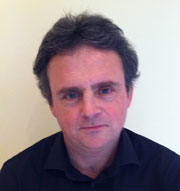- My Cart
0
No items in cart
- My Cart
0
No items in cart
 PCCS pays your UK postage
PCCS pays your UK postage
As a practising GP, Dr Terry Lynch was plagued by increasing doubts about his effectiveness in dealing with patients experiencing emotional distress. He no longer trusted the drugs handed out as routine treatment for so-called ‘mental’ illnesses. Changes in his working practice and a training in psychotherapy culminated in the writing of his controversial and deeply felt book. Every year one million people take their own lives worldwide, and thirty million attempt suicide. Terry Lynch believes that ‘suicide is a final act of avoidance, which in the context of the person’s life always makes sense’. Drawing on his wide experience as a GP and counsellor and using real case histories, the book demonstrates the common sense, but sadly controversial, idea that personal contact is a better healer than drugs.
Lovelessness and loneliness cannot be explained by chemical changes in the brain and cured by the ingestion of drugs. Lovelessness and loneliness, like anxiety and depression and all the ways of expressing distress which are called mental disorder, are part of what it is to be human, but a part that can be understood, diminished and banished from our lives simply by caring wisely for ourselves. Terry Lynch understands and cares wisely for us all. His immense warmth and humanity are revealed on every page of this book. It is truly a book for our time and for all time. Dorothy Rowe, Foreword to Beyond Prozac Beyond Prozac: Healing mental distress
Foreword by Dr Dorothy Rowe
Introduction
1. Medical Research
2. Does ‘mental illness’ exist?
3. Depression
4. Other ‘mental illnesses’
5. Why people kill themselves: the medical view
6. Why people kill themselves: an alternative view
7. The medical profession’s approach to suicide
8. Preventing suicide
A thoughtful and provocative book by a GP who retrained as a therapist in 1997 and continues to practice. His main concerns are the quality of training in mental health, the excessive reliance on medication to treat mental health problems and the pervasive influence of pharmaceutical companies on medical research, education and practice. More specifically, he does not take the view that mental illness is caused by biochemical imbalance in the brain, preferring to recognise the reality of emotional distress so dramatically reflected in rising suicide rates — especially among young men. Different diagnoses of the reasons for suicide form the central theme of the book, but there are also chapters on research, the concept of mental illness, and depression. A challenging read for the medical profession.
Scientific and Medical Network, Winter Issue, 2004
Every now and again a book comes along that is compulsory reading for practitioners. Beyond Prozac is such a book … This well researched and referenced book questions the prevailing medical model of care, which dominates the experiences of most people in contact with mental health services. Wil Lilburn-Quick Community Care, January 2005
This excellent book, easy to read and attention seeking, has certainly filled a number of gaps in my understanding of depression in particular, and has encouraged me to think for myself on the subject.
Yvonne Bates, Ipnosis Number 16, 2004
I just loved Beyond Prozac. If I ever get seriously unhappy, I’m going to camp on Terry’s doorstep … I can’t speak of it too highly. If ever a man puts a human face on mental suffering and offers an optimistic message, Dr Lynch is that man. William Glasser, MD, psychiatrist and author of Warning: Psychiatry can be hazardous to your mental health (HarperCollins)
Beyond Prozac is in my view the single most important contribution to our understanding of suicide in the past ten years … As a statement by a qualified and practising doctor of something which many of us instinctively know to be true, it is the vital articulation of the unsayable. John Waters, The Irish Times
Terry Lynch is a GP and therapist, and if fellow GPs – as well as psychiatrists – read this clearly written debunking of the medical model approach to mental health, the world will certainly be a better place. For non-professionals, it is an excellent summary of the key issues, with up-to-date references, facts and figures. Shaun Johnson, Mental Health Today, April 2005
Dr Terry Lynch qualified as a medical doctor in 1982. Separated from his parents at four years old, Terry lost his confidence in his teen years, becoming quite anxious, lonely and scared. Terry’s personal experience of mental and emotional distress has perhaps given him some insight into the pain of others. For over ten years, he worked as a General Practitioner. During this time, he become increasingly concerned about fundamental issues such as the quality of medical training in mental health, the excessive reliance on medication to treat mental health problems, and the pervasive influence of the pharmaceutical industry on medical practice. In 1997, Dr Lynch undertook to expand his understanding of mental health problems beyond the narrow medical approach to mental health, culminating in the completion of an MA in Humanistic and Integrative Psychotherapy in 2002 at the University of Limerick. Fully registered with the Irish Medical Council, Terry Lynch has for many years determined to adjust and improve his working practices with the aim of maximising the quality of the service he could offer to people experiencing mental health difficulties. In 2003, he was appointed by the Irish Ministry for Health to the government-appointed Expert Group on Mental Health Policy; the remit of this group is to shape the direction of mental health policy in Ireland over the next two decades.Since the publication of his book Dr Lynch has made numerous primetime television and radio appearances, and has been widely quoted in the press.
